by Liz Hawley, Education and Outreach Coordinator
With the New Year comes the new cycle of Community Reinvestment Fund (CRF) grant applications, decisions, and awards! Applications for the CRF grant are now open, and we will be accepting applications from local 501(c)3 nonprofits and cooperatives through January 31. Grants provide for local endeavors that are innovative, hands-on, educational, impact a large group of people, reach out to underserved populations, create jobs or develop skills, foster social engagement, and offer opportunities for diversifying partnerships, collaboration, and entrepreneurialism. Grants are competitive, and this year your Co-op’s Board of Directors has allocated $55,000 from abandoned Owner equity to award. For more information and to download the application, visit www.willystreet.coop/crf.
All organizations that receive awards provide progress reports to the Co-op about their funded projects. Here are the stories we received this past year.
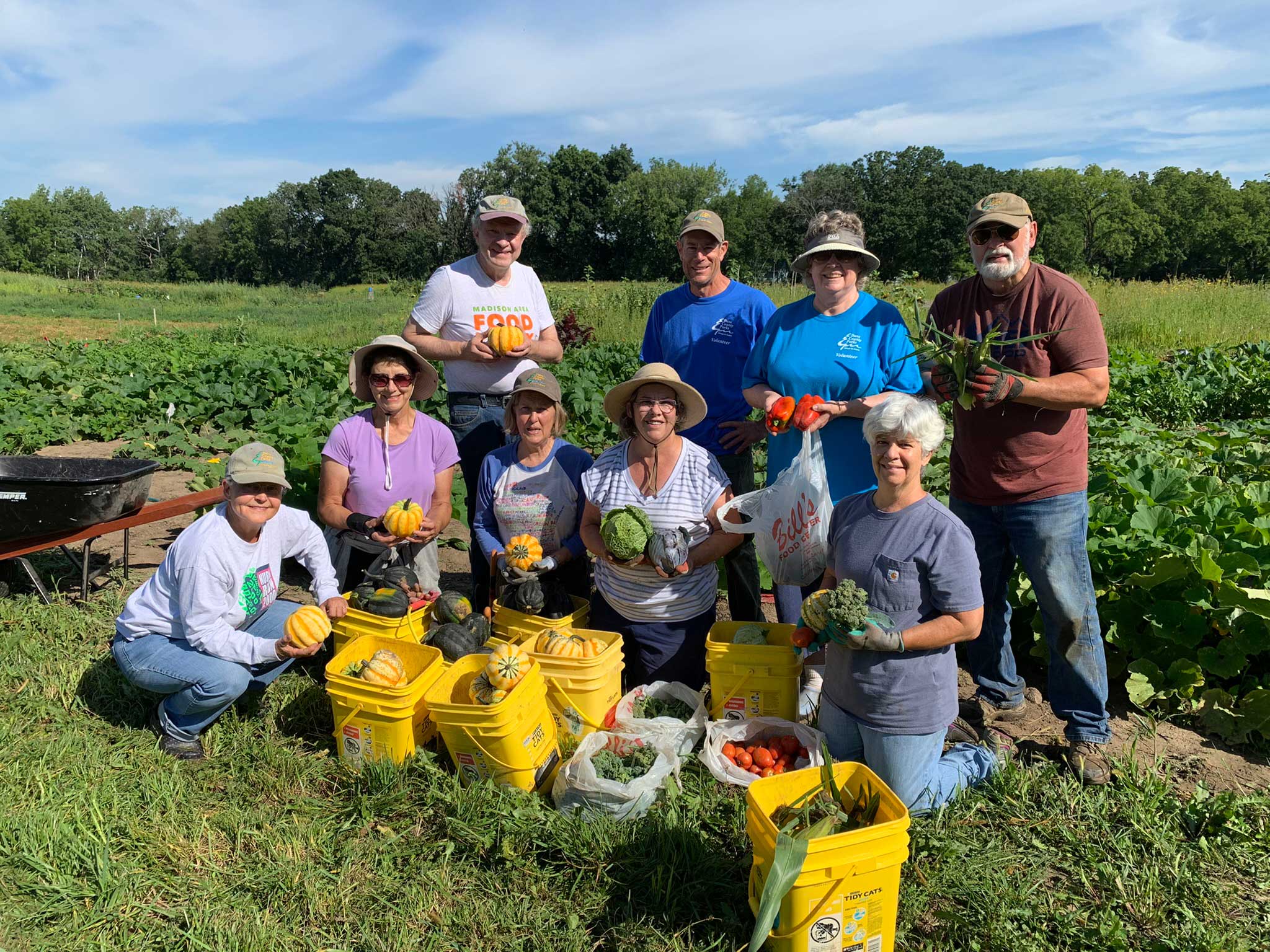
Anderson Park Friends
The third year of the food pantry garden at Anderson Farm Country Park proved to be a success. More than 15 volunteers raised over 2,800 pounds of produce for the Belleville, Oregon, and Verona food pantries as well as for Little John’s Kitchen. CRF grant funds provided for the purchase and installation of a micro-drip irrigation system, but plans had to be put on hold temporarily due to supply chain shortages as well as delays related to the installation of the large underground irrigation system—the first step in the larger project. Anderson Park Friends is looking forward to installing the drip irrigation system in the spring of 2023, which will help increase the yields from the food pantry gardens. (In photo above: Anderson Park Friends volunteers at harvest time.)
Goodman Community Center
Goodman Community Center’s TEENworks project to teach sustainable agriculture in hospitality took sustainability a step beyond planting, harvesting, and cooking in-season produce. They incorporated greens, herbs, flowers, and produce from their gardens to create living centerpieces for use at Goodman Center community events. The teens involved in the project learned to make cuttings that can be propagated at home and how to use local produce and flowers to make “sustainable centerpieces.” In total, they created more than 100 centerpieces that were used in six events, from a 50th class reunion to a wedding to Goodman’s Volunteer Recognition Picnic. Guests were encouraged to take the centerpieces home, and the teens shared information about how to use or replant the items at home.
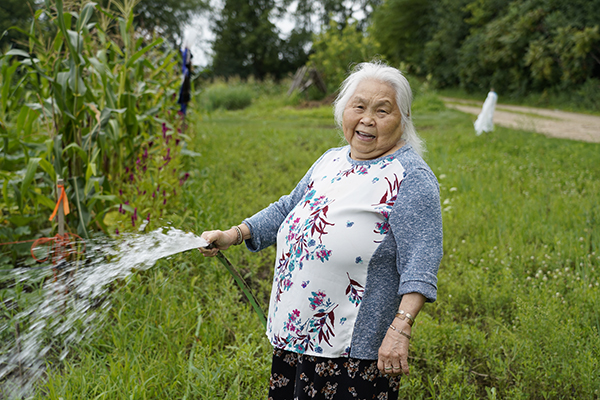
Groundswell Conservancy
Groundswell Conservancy undertook a project to provide access to gardening to HMoob (Hmong) elders living with PTSD, depression, and dementia. The gardening skills learned by many HMoob elders as children are resistant to memory loss and dementia, and gardening as a group reduces social isolation. Following the pilot project in 2021, Groundswell Conservancy responded to the HMoob elders’ request for water access near the therapy garden rather than hauling water from the well. With grant funding, they were able to install a water distribution system throughout the farm, add additional spigots, and relocate two spigots based on feedback from the elders and market growers. Now there are water spigots accessible at every quarter acre of production land. The elders and the rest of the growers no longer need to drive to the wellhead to carry water back to their growing areas. One HMood elder said, “The Therapy Garden brings happiness to our lives and every year, improvements have been made to extend our happiness and joy, which prolongs our lives in a space that we are able to connect with. We don’t want very much. We want to grow food, to be happy, and we want to matter in the community[…] Water nourishes the plants that will blossom into food that will nourish our bodies. Please tell all kind and loving souls that we appreciate them from the bottom of our hearts.” (In photo above: Xao Cha watered her vegetables with a garden hose as soon as the spigots were installed and ready for use.)
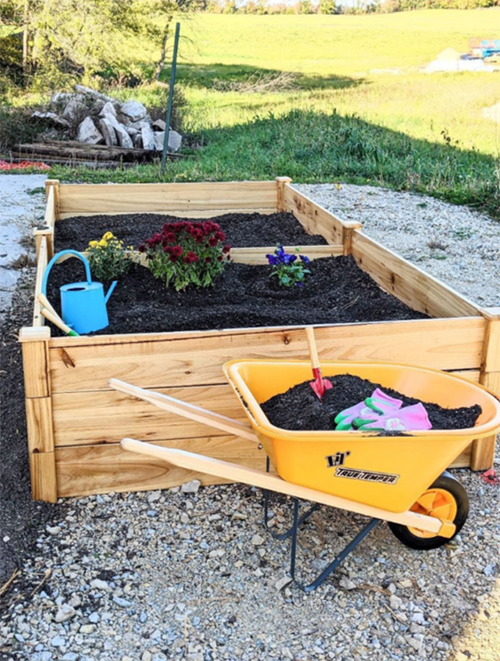
Heartland Farm Sanctuary
Heartland Farm Sanctuary’s (HFS) Garden and Grow program is well underway with five new raised garden beds ready for kids to plant, tend, and harvest the produce from the garden. The garden program teaches kids the basics of planting a vegetable garden and how they can grow their own food in an environmentally sustainable manner. The produce will ultimately be harvested and prepared by the kids for the animals living at the sanctuary. In preparation for the Garden and Grow program, the CRF grant helped HFS purchase gardening tools and equipment for young learners as well as a child-size wheelbarrow. They found that these items also benefited Heartland’s Experiential Therapy program where one participant who loves building and working with their hands took on the project of assembling the new wheelbarrow.
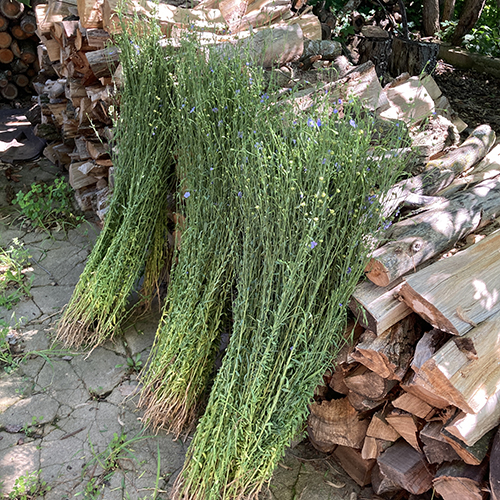
Heartland Threads
As part of their mission to establish a local, sustainable fibershed, Heartland Threads Fibershed conducted a survey to raise awareness regarding the origin of fibers used in consumer goods. Ultimately, their goal is for clothing and materials of household fabrics to be made of natural fibers, such as hemp or flax, and created with regenerative practices. These plant fibers break down naturally, eliminating landfill waste, they are created without toxic chemicals, and they do not contribute to the microplastic crisis. They reported the project to be a runaway success, with positive outcomes regarding community-building for the fibershed as well as stimulating interest in their work and adding new members. They noted the funding they received from the Community Reinvestment Fund was critical in “providing funds to support outreach time and materials, and in simply recognizing the merit and timeliness of working toward revitalizing our regional textile fiber production.”
Horizon High School
Horizon High School (HHS) provides students in recovery with a safe and supportive community in an academic and therapeutic environment. HHS used CRF grant funding for its life skills training program to provide students with the opportunity to experience different activities in the community that further social, emotional, and psychological growth. Students and staff traveled throughout their communities to experience a variety of activities—from parks to museums to college tours and amusement parks. These outings were designed to empower the students and support them in their recovery. Having these life experiences helps students gain independence and self-confidence while out and about in society while allowing them to develop a personal understanding of what it means to live a healthy, substance-free lifestyle.
KLJ Movement Inc.
With CRF funding, KLJ Movement obtained and installed ballet barres in the company space. The incoming dance scholars immediately noticed the addition to their dance space and noted that the addition of the ballet barres would assist them in learning dance techniques. KLJ Movement also further developed their partnerships with local schools, allowing them to broaden their reach in the community and provide more youth the opportunity to learn dance. CRF funding also contributed to KLJ Movement’s scholarship fund, and in 2022, they were able to support ten scholars in dance programs. They noted that this scholarship program relieved the financial burden for families while allowing the scholars to develop their confidence and identity.
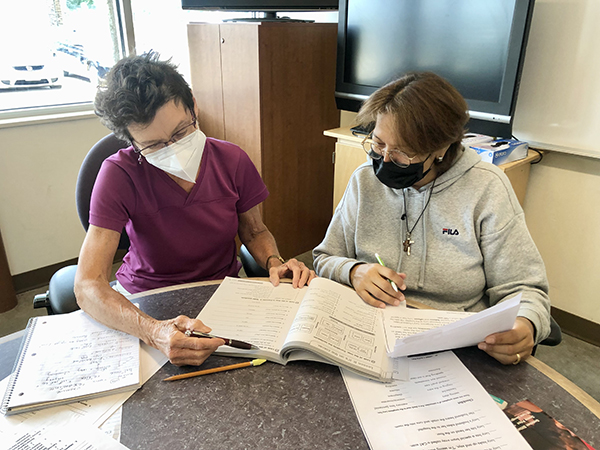
Literacy Network
CRF funds allowed Literacy Network to create and deliver mini-lessons on the evolving COVID-19 pandemic and vaccines, to ensure that their students had access to accurate and up-to-date information in Plain English. These lessons reached approximately 400 people. In addition, Literacy Network staff conducted one-on-one needs surveys throughout the year. In total, Literacy Network staff made 347 connections to community resources that their students needed. Their staff helped students access local healthcare resources, food pantries, childcare resources, transportation resources, immigration legal support, employment support and opportunities, and information related to the COVID-19 pandemic and vaccines. Overall, they found that integrating public health information into language and literacy lessons proved to be a successful approach, and they plan to continue addressing important current topics in their classes and tutoring sessions.
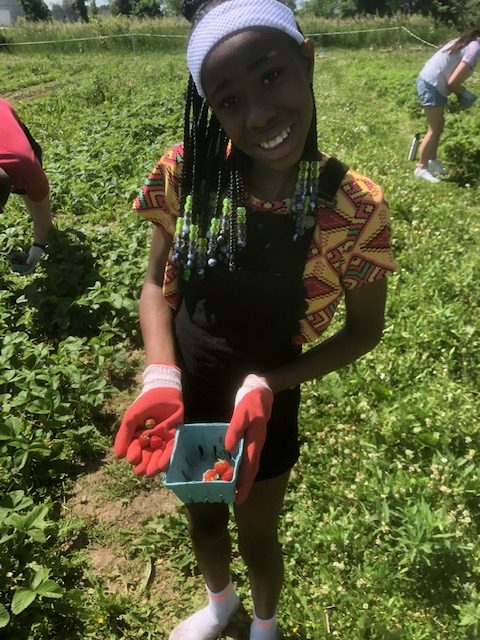
Madison Area Food Pantry Gardens
The focus of Madison Area Food Pantry Gardens’ (MAFPG) project was to grow first-choice nutritious and culturally relevant produce for local food pantries while engaging youth in experiential learning at Forward Garden. They planted 51 different varieties of fruit and vegetable crops at Forward Garden (one of their nine gardens), which yielded 28,405 pounds of produce that were donated to 26 different outlets in the local emergency food system—ten of these were new outlets and 16 were previously established partnerships with area food pantries. MAFPG involved youth through a number of different programs, including field trips to the farm to help with seeding, weeding, and harvesting, and by delivering fresh produce to local community centers to integrate into their nutrition curriculum.
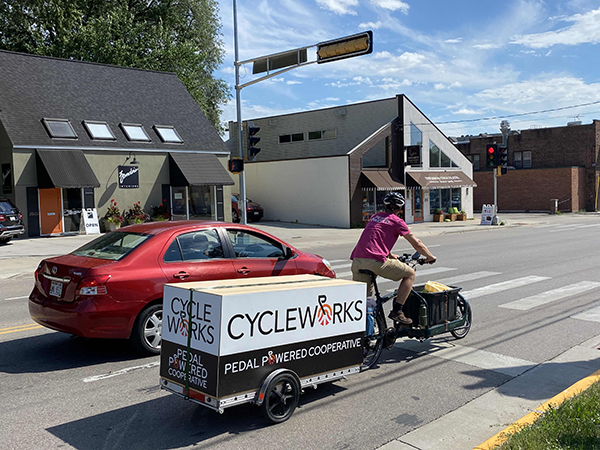
Madison CycleWorks
Madison CycleWorks (MCW) is a start-up bicycle delivery cooperative that is forming partnerships with local businesses to offer a bike delivery option for the businesses’ products. With grant funding, MCW expanded their cargo bike fleet by one bike that is dedicated to making sustainable bike-powered deliveries. This new cooperative delivered 789 packages and continues to make deliveries twice a week, with an average of 25 packages per week. These deliveries saved 379 car miles! MCW is now focusing on sustaining current delivery contracts and preparing for expansion during the next warm season. In the future, MCW plans to explore the option of a pedicab for human transport service as well.
Madison Freewheel Bicycle Co.
After a hiatus caused by the coronavirus pandemic, Madison Freewheel Bicycle Co. re-opened their Open Shop classes with the support from the CRF grant, and they held 28 of these sessions from April through October. Open Shop is an open learning forum for anyone interested in doing work on their bike and learning bike repair. The bike shop provides new and used consumable parts that may be needed for bike repair, and Freewheel bike mechanics are on-hand at each Open Shop to provide guidance and instruction. Freewheel asks for a small donation to attend and for any parts used or taken home, and grant funding provided access for those who may not have otherwise been able to pay to attend and use bike parts free of charge. Freewheel noted that half of the people in each session were attending for the first time which shows their outreach efforts were a success.
Milestone Democratic School
Milestone Democratic School’s Social Justice Arts Initiative proved to be a positive experience for students at the school as they were able to participate in a social justice advocacy experience that they organized on their own. This project combined social justice and art, and CRF funds were used to compensate guest speakers and artists for their presentations and workshops. The funds also covered the cost of the supplies for students to make instruments with the guidance of traditional craftspeople
The Madison Skatepark Fund
The Madison Skatepark Fund (MSF) planned to construct a new all-wheel park with the help of volunteers, but the spring was too wet for construction and later they came across some issues with the site of the future all-wheel park. They’re working to move this project forward, and they hope construction will begin in spring 2023. The 2022 CRF Committee approved the use of the funds for construction in the spring of 2023 to accommodate these obstacles beyond MSF’s control.
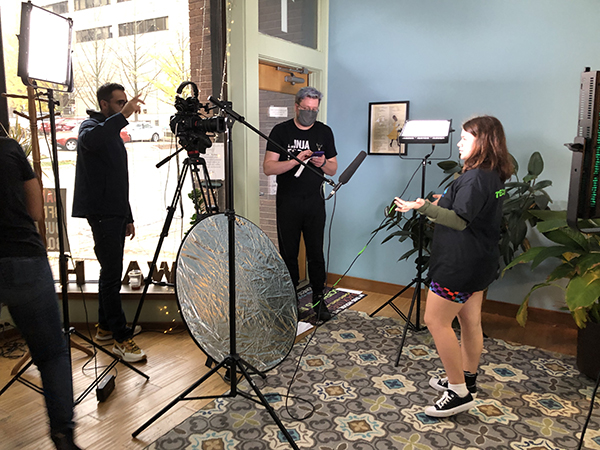
Wisconsin Alliance for Women’s Health PATCH Program
The PATCH (Providers and Teens Communicating for Health) is a youth-driven program working to improve adolescent health and well-being. Teen educators deliver workshops to their fellow high school students teaching them how to advocate for themselves in a healthcare setting. In response to requests from both teens and healthcare professionals, PATCH created a video as an additional resource for those who are not able to attend the peer-to-peer workshops. Teens in the program were involved in brainstorming ideas for content, developing stories and examples to include in the script, and starring in the production.
Thank You 2022 CRF Grant Recipients and Owners
Each year we look forward to reading about the innovative projects our local nonprofits propose when they apply for the Community Reinvestment Grant Fund. Hearing about the successes when projects come to fruition is even more inspiring. For us, another grant cycle has come to a close, but the work of these nonprofits never ends. Thank you to all of the organizations for the impactful work you do for the communities you serve! Thanks, also, to the Owners who have left the Co-op and opted to donate their equity to charitable purposes—this funding is possible because of your generosity—thank you! We’re looking forward to reading the innovative grant proposals for 2023!









